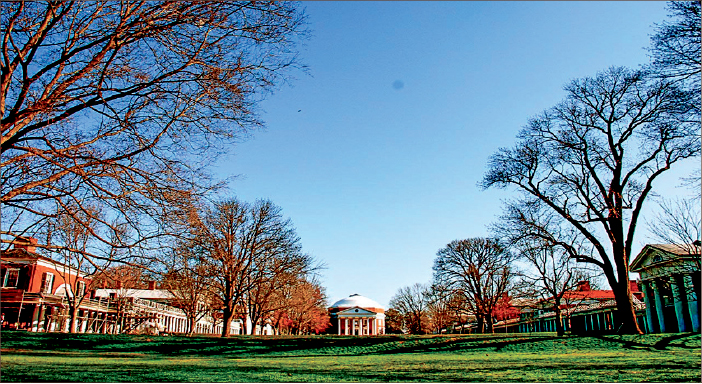Recent rape cases show deeper issue of college campus alcohol abuse

Assault — University of Virginia fraternity Phi Kappa Psi plans to sue Rolling Stone Magazine for defamation after allegations of a university student’s rape case were found to be unsubstantiated. Google Images
I am grieved.
“A Rape on Campus,” a story published by Rolling Stone magazine — which was incompletely investigated at best and completely fictitious at worst — has been retracted, and the Phi Kappa Psi fraternity at the University of Virginia (UVA) is now suing the publication for defamation.
The story, released in the November 2014 issue of Rolling Stone, recounted — in graphic detail — the brutal gang rape of a female student, “Jackie,” during a Phi Kappa Psi fraternity party Sept. 28, 2012.
There is no doubt in my mind Jackie was the victim of a sexual assault, though it does not appear she is the victim of the particular assault she described. As a Charlottesville, Virginia, native who has friends attending UVA, I am grieved for Jackie and the university community. I am grieved by Rolling Stone’s failure to thoroughly investigate Jackie’s story before publishing it.
But more than that, I am grieved by another issue that has not been adequately addressed in conjunction with this story: the fact that alcohol abuse is destroying the lives of college students across the United States.
It is also no secret that fraternity and sorority parties are often fueled by alcohol. After all, everyone just wants to loosen up and have a good time, right? So what is the big deal?
According to a report from the National Institute on Alcohol Abuse and Alcoholism, approximately 1,825 students between the ages of 18 and 24 die each year because of the influence of alcohol, and more than 97,000 students nationwide between the ages of 18 and 24 are victims of alcohol-related sexual assault or date rape.
This is a horrific tragedy that deserves our full attention, and if we are not addressing it, we are complicit.
Because, regardless of whether Jackie’s story is true or not, thousands of female students are victims of rape and sexual assault every single year, and underage, out-of-control alcohol consumption is partly to blame.
Casting restraint to the wind, many college students engage in binge drinking — drinking excessive amounts of alcohol in a short period of time — as is often the case with Greek life parties.
What many students fail to realize, however, is that alcohol is a drug and a dangerous one at that.
Alcohol can act as a depressant, relaxing the muscles and impairing motor skills and speech, as well as a stimulant, creating a feeling of euphoria and invincibility.
And, in college students whose prefrontal cortexes have not fully developed yet, it can have disastrous consequences if not used responsibly.
Being the two-faced substance that it is, alcohol can cause both physical and psychological addiction. In the first instance, the body has become so accustomed to it that it actually needs alcohol in order to function. In the second, the brain also thinks it needs alcohol in order to function.
I understand that alcohol is not the primary factor in sexual assaults or rapes, but it is a significant one. Excessive drinking has become an epidemic among American college students, and if the issue is not dealt with, the number of sexual assaults and rapes reported on college campuses is only going to increase. When inhibitions are down, it makes it easier for such crimes to be committed.
But let me be clear. A rape or sexual assault is never the victim’s fault.
In order to combat young adult alcohol abuse — and the sexual assaults and rapes that frequently result from it — a culture of compassion, not condemnation, is necessary. The problem lies not in the alcohol itself, but in the human heart.
To borrow the phrase from a wise pastor of mine, alcohol is a “cheap imitation.” It promises satisfaction and fulfillment, but it never delivers.
“I think a major reason that college students drink is because it’s so tied into how people socialize,” Tom Breeden, a UVA alumnus and a current student at Reformed Theological Seminary in Washington, D.C., said. “Drinking and socializing are so intertwined that students are largely expected to drink if they want to socialize. … However, the link between drinking and socializing isn’t set in stone. Students just need viable alternatives. There are students who don’t want to drink, but feel pressured to because parties are where you often meet people.”
According to Breeden, who has worked in youth ministry, students need viable, non-corny alternatives to intoxicated fests. Further, Breeden said Christian students need to set an example for their peers in the way they conduct themselves.
“I also think that there is value in those who are of age setting a good example,” Breeden said. “I believe Christians who are of legal age have the freedom to drink in moderation. So part of discipleship is setting a good example for younger Christians. … If Christians cannot learn responsible drinking from more mature Christians, then those who want to drink will learn how to do it from the world around them.”
I am not naïve enough to believe that the problem of college alcohol abuse is going to be eradicated. The problem is not fixed by granting more freedom to drink or having less of it. If change is going to happen, it is only going to happen by a change of heart and mindset.
For those of us who call ourselves Christians, it is our job to care for those who are struggling with this issue and for those who have been victims of sexual abuse and violence. If we turn away, pretending not to see, to hear or know, we are giving our consent to the problem. And we will be held responsible.
Graf is a feature writer.